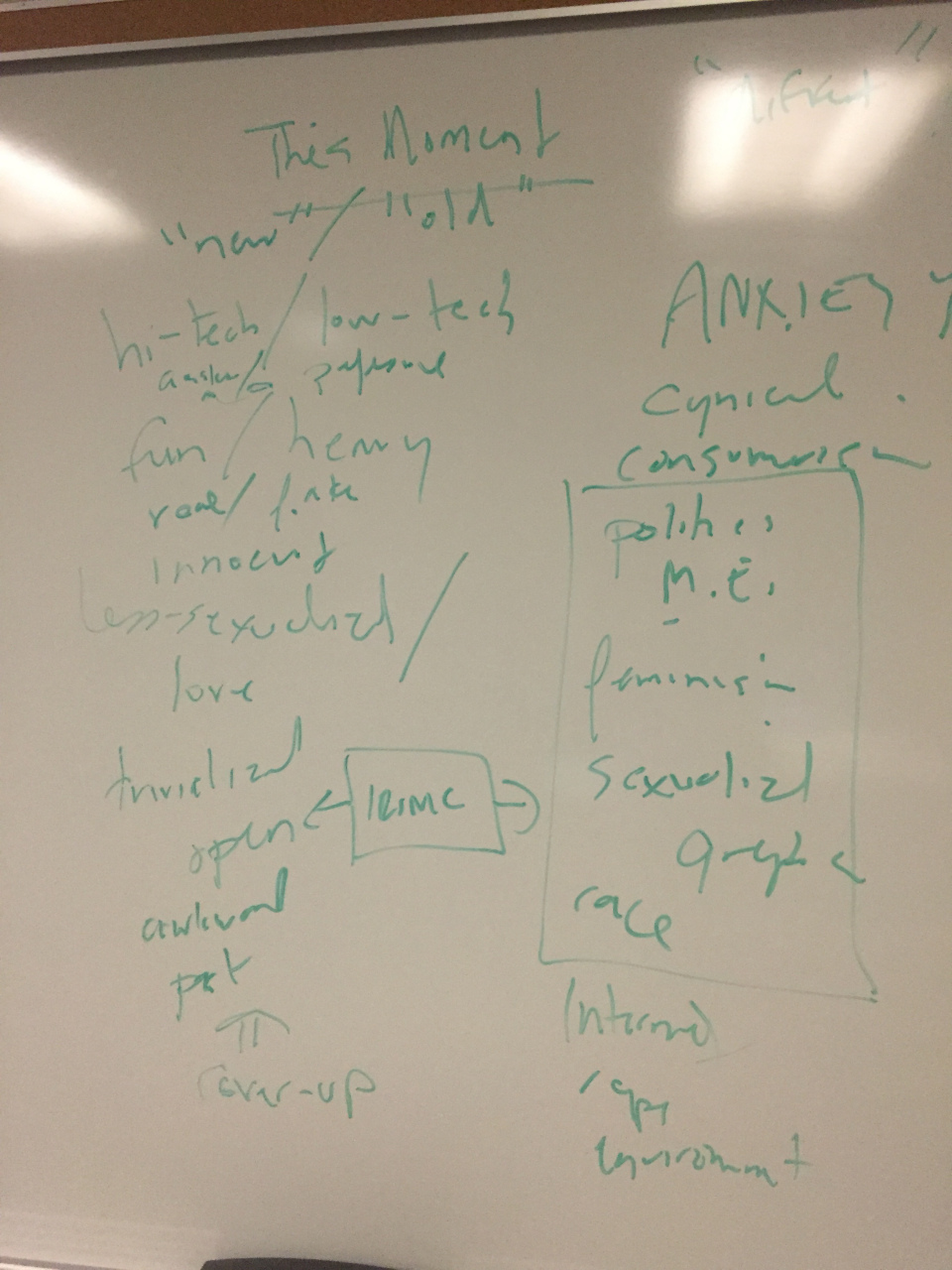 Meanwhile, the Michigan feminists also attested to a level of fatigue, anxiety, and hard-to-manage overwhelmedness brought on by new and social media consumption practices. I suggested that media production and its feeding feminist process, now radically accessible to so many, is a final feminist frontier in that it can maintain attention, ethical conditions, non-corporate environments, and clearer boundaries of commitment that now seem nearly impossible in the space of new media reception given the noise, hyper-visibility, and corporate domination of this space. As you see, these conversations circled around architectural metaphors and material considerations attempting to describe possible feminist media spaces, norms, and histories that might be defined by counter-, concordant-, and/or immersive YouTube practices (a project I have being pursuing in my Feminist Online Spaces work).
Meanwhile, the Michigan feminists also attested to a level of fatigue, anxiety, and hard-to-manage overwhelmedness brought on by new and social media consumption practices. I suggested that media production and its feeding feminist process, now radically accessible to so many, is a final feminist frontier in that it can maintain attention, ethical conditions, non-corporate environments, and clearer boundaries of commitment that now seem nearly impossible in the space of new media reception given the noise, hyper-visibility, and corporate domination of this space. As you see, these conversations circled around architectural metaphors and material considerations attempting to describe possible feminist media spaces, norms, and histories that might be defined by counter-, concordant-, and/or immersive YouTube practices (a project I have being pursuing in my Feminist Online Spaces work).
The twenty-five year plus bodies of work shared by many of our group who have devoted their careers to ongoing, careful, connected, personal and political media projects help refine vocabularies for feminist media practices that can and do share the broader media ecology with YouTube and social media. For instance, our host, Carol Jacobsen, has been making photo and video for over twenty-five years as part of her work as the Coordinator of the Michigan Women’s Clemency Project, advocating for the human rights of women prisoners and seeking freedom for women wrongly incarcerated. Her feminist media work has been shown in galleries, used by activists, lawyers and policy people, and contributed to the release of nine wrongfully-incarcerated women. Some of it is on Vimeo while also sitting elsewhere across the Internet.